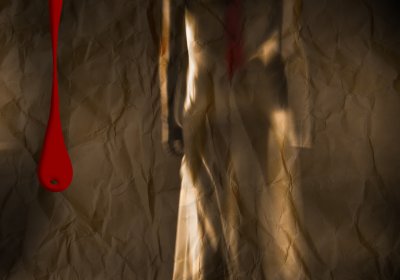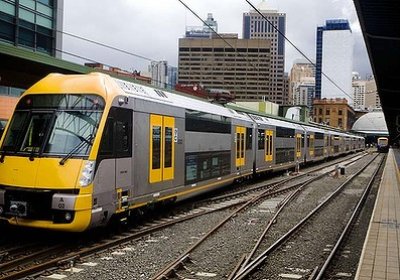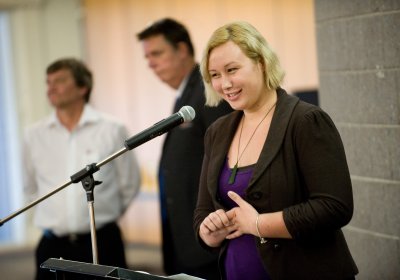While much of the focus this election has been on the battle for western Sydney, noticeably absent from media reporting has been the campaign waged by Greens candidates in the area.
Yet the Greens are not only fielding candidates in every western Sydney electorate, “We are taking active roles in our local communities across western Sydney”, explained David Lenton, the Greens candidate for the seat of Lindsay.
More than that, they have the old mainstream parties running scared.
Fred Fuentes
About 70 activists gathered in Parramatta Town Hall on May 11 for the second annual Climate Change-Social Change conference.
Hosted by Green Left Weekly, the conference drew together a broad range of activists from various environment campaigns, anti-coal seam gas groups, the Greens and the Socialist Alliance, cementing its role as an important annual gathering for western Sydney activists.
University students across Australia will take to the streets on May 14 to protest the federal Labor government’s $2.8 billion cuts to higher education. The call by the National Union of Students (NUS) for a “student strike against education cuts” has not only received support from students, but also the National Tertiary Education Union (NTEU), which covers university staff. On a number of campuses, NTEU members have been resisting cuts that university administrations claim are necessary due to lack of government funding.
“The Stain” is the name of a photo exhibition by Turkish artist A. Suderin Murat, which looks at the issue of violence against women.
Coinciding with International Women’s Day, the exhibition will be open to the public from March 4-10 at the Auburn Town Hall Exhibition Gallery.
For many years, Murat has campaigned against all kinds of discrimination. She considers art to be “the most effective and peaceful tool” for helping society.
Angry residents from Kemps Creek and surrounding neighbourhoods packed the local sports and bowling club auditorium on February 18 to protest against the state government’s plan to dump radioactive waste in the area.
The NSW Liberal government is proposing to shift 5800 tonnes of soil from an area in Hunters Hill, where a uranium ore processing plant once stood, to the Kemps Creek SITA dump site.
Cancer clusters have been detected in Hunters Hill, which have been linked to the contamination left behind at the former plant site.
Around 200 people turned out for the February 13 protest in Casula to tell Barry O’Farrell to "lock the state" on coal seam gas companies. The protest was initiated by Socialist Alliance and Greens activists in Western Sydney.
The breadth of growing anger against the CSG industry was on display through the number of groups that supported and spoke at the rally. This included representatives from the Scenic Hills Association, SOS Rivers, NSW Greens MLC Jeremy Buckingham as well as Stop CSG groups from St Peters, Ingleburn, Blacktown, Blue Mountains and Illawarra,
NSW Transport Minister Gladys Berejiklian announced on November 16 plans to sack albout 700 railway workers and split up RailCorp.
Green Left Weekly’s Fred Fuentes asked Socialist Alliance member and railway union activist, John Coleman about the motives behind these plans and what they will mean for Sydney’s public transport system.
The NSW government has said that the job cuts are mainly focused on cutting waste among middle-level management. Can you tell us what the cuts are really about?
Staff and students from across all six University of Western Sydney (UWS) campuses protested on November 21, in opposition to university management plans to axe several courses.
Among the courses to go are Arabic, Spanish, Italian, the Bachelor of Communication sub-majors in writing, performance and animation, and the entire Economics degree. Along with these, the jobs of 29 academics in the School of Business and a further 25 in the School of Humanities and Communication Arts will be cut.
A global survey of 27 of the most important cities in the world has ranked Sydney as fourth-worst for public transport. Sydneysiders also pay more for public transport than anywhere else.
The study was carried out by PricewaterhouseCoopers.
If this was not bad enough, the situation is set to worsen. The November 16 Sydney Morning Herald said a high-level RailCorp document outlined another 690 jobs to be cut in the train sector.
“You know how they say Lee Rhiannon is a watermelon,” newly elected Greens councillor Michelle Tormey tells Green Left Weekly, “I could probably relate to being a bit of a watermelon myself.”
“I don’t think capitalism is good and I probably lean more towards socialism. I believe that, at the very least, key public services like water, electricity, health care, dental care, are things that everyone should have access to.
“That’s what I think and I don’t care if anyone judges me on that.”
Sixteen Aboriginal adults in the remote New South Wales town of Wilcannia are the first graduates of a groundbreaking trial literacy program that would not have been possible without the help of a tiny Caribbean nation — Cuba.
At the beginning of this year, Cuban educator Jose Chala Leblanch arrived in Wilcannia to help establish the literacy program based on the world-famous “Yes, I Can” teaching method developed by Cuba.
With little fanfare or media attention, the small island nation of Cuba has been running an Aboriginal literacy program in the town of Wilcanni, in central new South Wales. Already, 16 local Aboriginal residents aged between 25 and 53 have learned to read and write through the program.
- Previous page
- Page 4
- Next page










